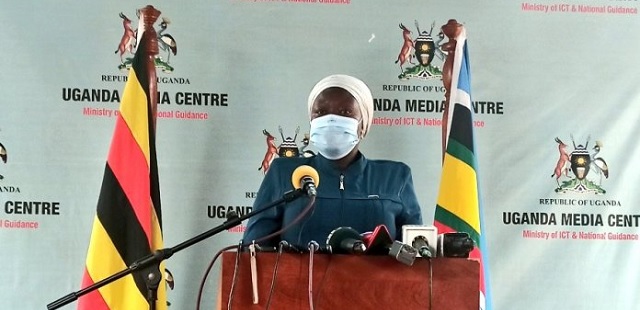Minister Among calls for social protection for workers in informal sector

The Minister for Gender, Labour and Social Development, Betty Amongi has said there is need to extend social protection for workers in the informal sector.
“The problem we have is that the labour justice law focuses more on formal employment and yet under the statistics, majority of Ugandans are in the informal sector. We need to now see how we protect the rights of workers in the informal sector,” Amongi said.
Keep Reading
The minister was on Wednesday speaking during the second annual national labour convention and expo at Mestil Hotel in Kampala.
Amongi said whereas the country has laws to endure protection of labour rights, majority of them mainly focus on protecting those in formal employment.
“Our labour laws focus on ensuring labour rights are protected, exercised and enforced but workers like shamba boys, maids and those relatives many Ugandans employing in family businesses are not protected. We need to look at how to ensure that even those in the informal sector are addressed and protected by the laws,” she said.
The minister said whereas the structure of delivering labour justice starts from district labour officers, to the registrar of labour, labour arbitration court and the industrial court, labour officers are poorly facilitated.
“In most of the districts, the labour office is not wll facilitated. They don’t have vehicles and not even motorcycles yet they are they are the ones supposed to sit and arbitrate with powerful employers who accused of violating the rights of their employees,” Amongi said.
“We need to ensure we empower the labour offices at the districts but also strengthen these administrative justice systems for workers to ensure occupational health and safety at work places, handling disputes and accessibility to court.”
She however noted that a law is before parliament to strengthen these systems.
"With all the successes government has registered in providing the enabling environment for employment creation and job rich growth, we need to see improvements in delivery of labour justice to persons affected in employment relations. This also means that all matters connected with unemployment and employment relations are critical and need to be addressed in a way that can promote good industrial relations."
Industrial court
The minister said it is appalling that the Industrial Court is only situated in Kampala yet it has to handled disputes from all over the country.
“What about the disputes from other parts of the country? Workers from the 146 districts can’t walk to Kampala when labour officers have failed to handle their issues,” Amongi said.
Speaking in response, the head of the Industrial Court, Lady Justice Lillian Tumusiime Mugisha said in a bid to deal with cases in districts far away from Kampala, they are set to hold special sessions in those specific areas to hear and dispose of the cases.
The Ministry of Gender Permanent Secretary, Aggrey David Kibenge said in a world where economic growth and social justice are increasingly intertwined, it's crucial that conditions under which our workforce operates are addressed.
Ensuring access to labour justice not only upholds human dignity but also significantly boosts productivity.Labour justice encompasses a wide range of rights and protection for workers. It involves ensuring fair wages, reasonable working hours, safe working conditions, non-discrimination, and freedom from exploitation. It also includes mechanisms for resolving disputes between employers and employees in a fair and timely manner. When workers feel valued and protected, they are more likely to be engaged and motivated, positively impacts their productivity," Kibenge said.
He said that research has consistently shown that workplaces with high levels of labour justice tend to have higher productivity.
"This connection can be explained through high employee morale and engagement, reduced workplace conflicts and industrial action, increased attraction and retention of talent, better health and safety at the workplace as well as heightened innovation and creativity."















